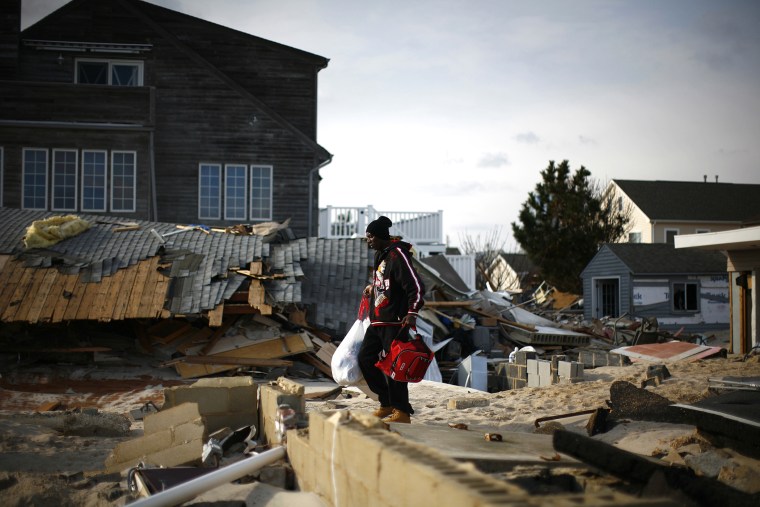New Jersey Gov. Chris Christie trumpets his post-Superstorm Sandy rebuilding effort as the crowning achievement of his first term. But are some New Jersey residents being left out of the Republican governor's "Stronger than the Storm" vision?
According to data released by the Fair Share Housing Center (FSHC), African-American and Latino residents have been rejected by New Jersey's housing recovery programs at a higher rate than their white counterparts. The data can be found here.
After a prolonged legal battle with the Christie administration to gain access to the Hurricane Sandy recovery demographic information, FSHC determined that the Resettlement Program rejected 40.7% of African-Americans, and 22.8% of Latinos compared with 14.9% of white residents of the same low and middle income status. The state's Reconstruction, Rehabilitation, Elevation and Mitigation (RREM) program showed similar numbers.
Adam Gordon, an attorney for FSHC, partly attributes the discrepancy to the Christie administration's failure to reach black and Latino communities. "The lack of outreach on the state's programs for relief is in sharp contrast to the 'Stronger than the Storm' ads which were everywhere."
Awareness of, as well as access to New Jersey’s recovery programs also seems to have been an issue. "From what we have heard, people in some predominantly white communities had better access to information and help applying in the process," said Gordan.
President of the New Jersey NAACP, Richard Smith wants answers. "We're not outright saying this is discrimination. But the governor's office and the Department of Community Affairs need to take a long look and find out why there is such a disparity," he said.
The Christie Administration could not be reached for comment.
